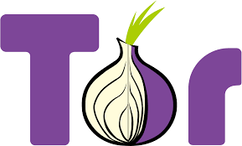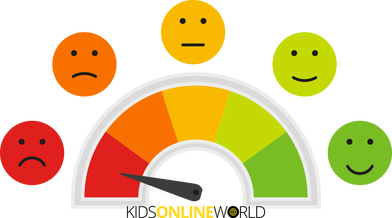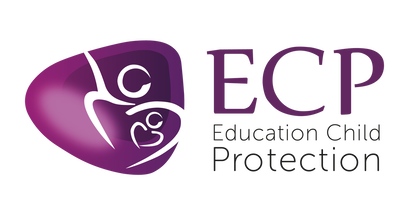TOR
|
MINIMUM AGE: Tor does not have a specific age rating as it is a tool designed to enhance online privacy and security. However, it is generally recommended for mature individuals who understand its purpose and implications. It is important to note that Tor enables access to the broader internet, including potentially sensitive or inappropriate content.
WHAT IS IT? Tor as it's better known the dark web, refers to a computer program that enhances your online safety. By leveraging a distributed network of relays operated by volunteers worldwide, Tor safeguards your communications. It ensures that your internet activities cannot be monitored by eavesdroppers, shielding the sites you visit from discovering your physical location. This network of volunteer relays is known as the Tor network. The most common way people utilize Tor is through Tor Browser, a modified version of Firefox that addresses multiple privacy concerns. WHAT WE SAY: Avoid. Doesn't TOR enable criminals to do bad things? Tor says "Criminals can already do bad things. Since they're willing to break laws, they already have lots of options available that provide better privacy than Tor provides. They can steal cell phones, use them, and throw them in a ditch; they can crack into computers in Korea or Brazil and use them to launch abusive activities; they can use spyware, viruses, and other techniques to take control of literally millions of Windows machines around the world. Tor aims to provide protection for ordinary people who want to follow the law. Only criminals have privacy right now, and we need to fix that". While Tor itself is a tool designed to enhance online privacy and security, it is important to be aware of the potential risks and dangers associated with the dark web, which is accessible through Tor or other similar networks. Here are some key points to consider: 1. Illicit Activities: The dark web hosts various illegal activities, including the sale of drugs, weapons, stolen data, and hacking services. Engaging in or accessing such activities is illegal and can lead to severe consequences. 2. Malicious Content: The dark web contains malicious websites, scams, and malware that can pose significant risks to users. These can include phishing attempts, fraudulent services, and malware downloads. 3. Cybercrime and Hacking: The dark web is known to harbor cybercriminals who engage in hacking, identity theft, and other illegal activities. There is a risk of personal information being compromised or used for malicious purposes. 4. Disturbing Content: The dark web can host disturbing and illegal content, such as child exploitation material and other explicit or violent material. Accessing such content is not only illegal but also deeply unethical. 5. Lack of Regulation: The dark web operates outside the boundaries of traditional internet regulations, making it challenging to enforce laws or protect users. This absence of regulation increases the potential for criminal activities to thrive. Given these risks, it is crucial to exercise caution and make informed decisions when using Tor or accessing the dark web. It is generally advisable to refrain from accessing the dark web unless you have a legitimate and legal purpose, and to prioritise personal safety and security when using any online service. |
SAFETY TIPS TO CONSIDER:
When it comes to the dark web, it's important for parents/ carers and educators to be aware of the potential risks and take necessary precautions to ensure their children's online safety. Here are some safety tips for parents: 1. Communication and Education: Foster open communication with your children about internet safety and the potential dangers of the dark web. Educate them about the risks associated with accessing illegal content and engaging in illicit activities. 2. Set Clear Guidelines: Establish clear guidelines regarding internet usage, including specific instructions about avoiding the dark web and explaining its potential dangers. Reinforce the importance of responsible and ethical online behavior. 3. Parental Controls and Monitoring: Utilise parental control software and tools to monitor and restrict your child's online activities. These tools can help filter and block access to inappropriate content, including the dark web. 4. Teach Privacy Protection: Instruct your children about the importance of safeguarding personal information online. Emphasize the significance of not sharing sensitive details, such as full names, addresses, or financial information, on any platform. 5. Supervision and Boundaries: Maintain an active presence in your child's online activities. Encourage them to use the internet in shared spaces like the living room, where you can monitor their online behavior and offer guidance when needed. 6. Teach Critical Thinking: Teach your children to think critically and evaluate the information they come across online. Encourage them to question the legitimacy and trustworthiness of sources and to be skeptical of enticing offers or requests for personal information. 7. Report Suspicious Activity: Instruct your children to report any suspicious or concerning activity they come across while browsing the internet, including encounters related to the dark web. Make sure they understand how to report such incidents to a trusted adult or authority figure. Remember, fostering open communication and establishing a trusting relationship with your child is key to maintaining their online safety. Regularly engage in conversations about internet usage, address any concerns they may have, and ensure they feel comfortable seeking your guidance when encountering unfamiliar or potentially dangerous online situations. FURTHER SUPPORT: For parents/ carers If you're worried about your child or need support call NSPCC helpline on 0808 800 5000. If you discover criminal content when online then report it directly to the police or the Internet Watch Foundation. If you're worried about online grooming or sexual behaviour online then report directly to the police or contact CEOP. For Children & young people if they're worried or want to talk, encourage them to contact Childline Online or call 0800 1111. Check out our Resource Centre for further information and useful online safety tips. |



